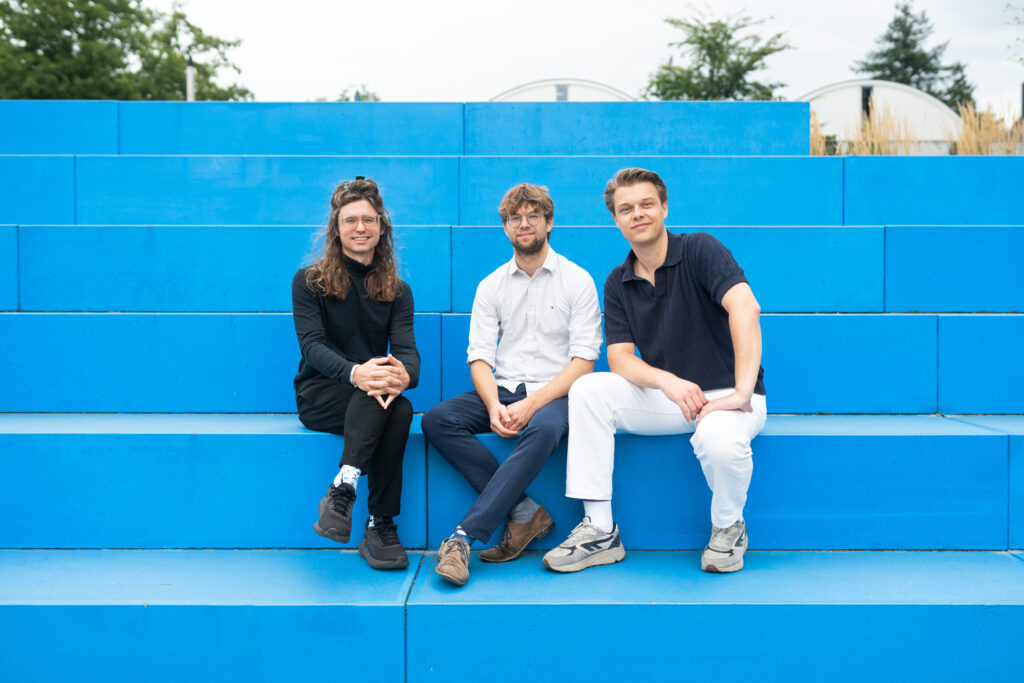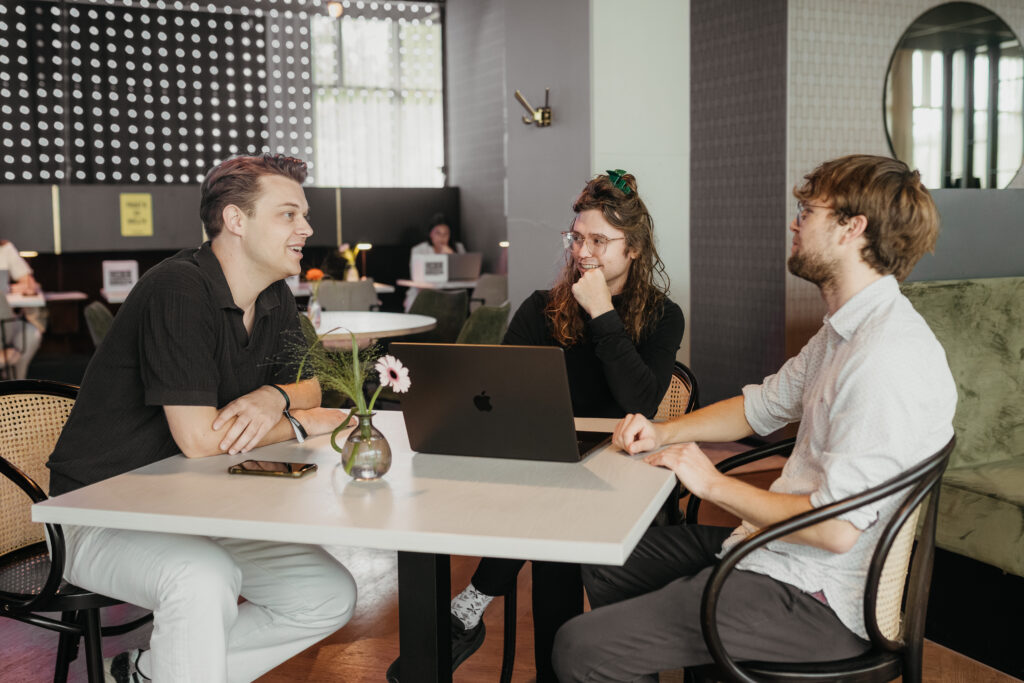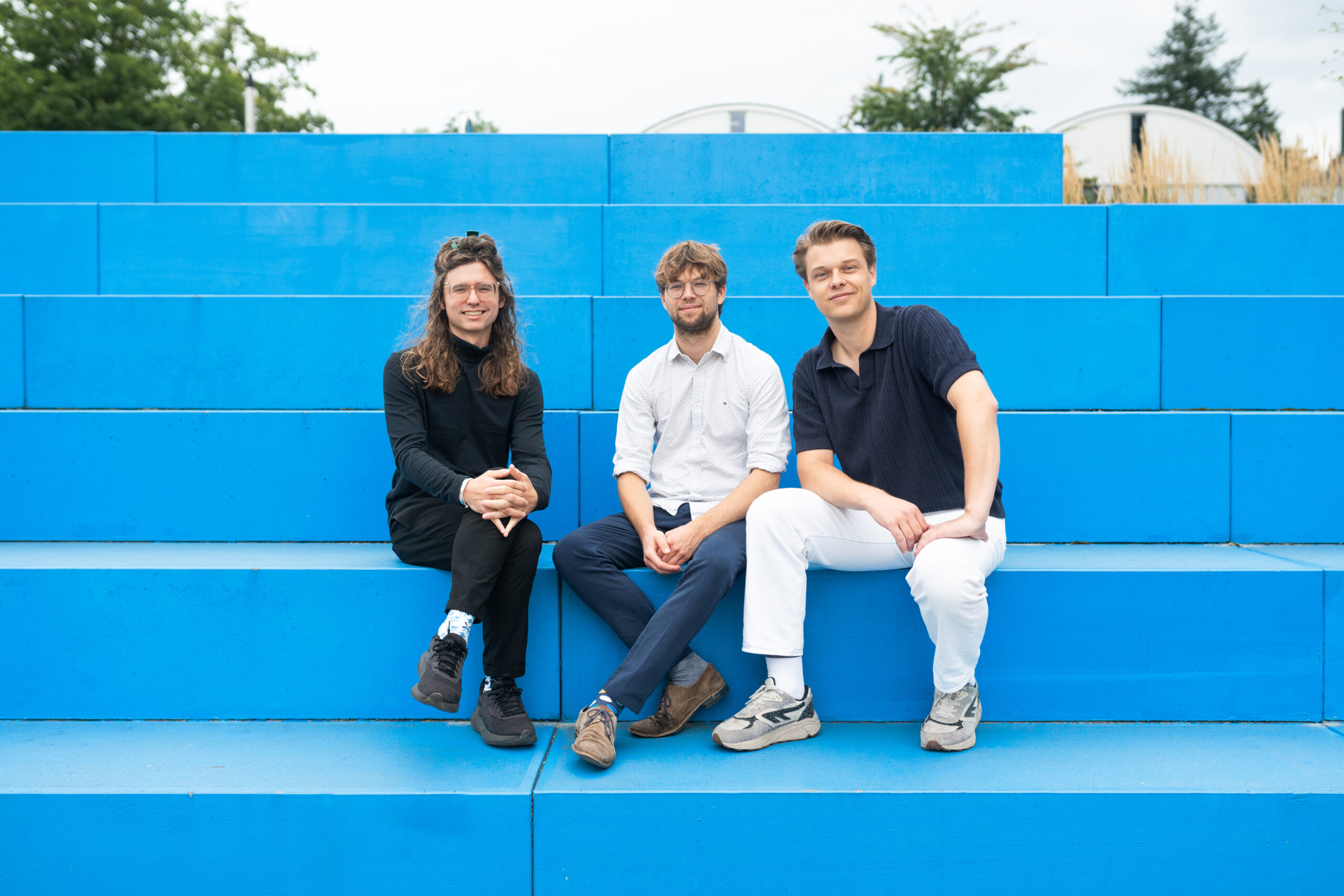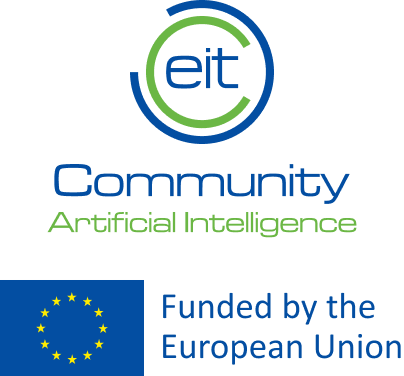A chat with Rens Dommerholt, Bekk Blando, & Kaspar Rothenfusser, founders of Thoughtful Oasis
Most startups begin with a clear industry itch to scratch. Thoughtful Oasis started with something more abstract and far more ambitious: a shared obsession with search.
Co-founders Rens Dommerholt, Kaspar Rothenfusser, and Bekk Blando didn’t set out to launch an AI company. In fact, none of them wanted to. What pulled them together was a simple but profound question: how do you find something if you don’t know how to ask for it?
The Innovation: A New Way of Searching
At its core, Thoughtful Oasis is building a new kind of search engine. One that doesn’t depend on exact words or neatly phrased queries. Because that is the problem with conventional search: you can’t find what you don’t know how to name. Type in the wrong word, miss the jargon, or search for a ‘vibe’, and existing tools fall short.
Thoughtful Oasis tackles this with what they call vector ontologies: a retrieval and embedding system that automatically creates a taxonomy from any dataset and uses it to map the qualitative and quantitative features that matter.
Imagine asking for ‘a playlist for a road trip when you’ve just broken up’ or ‘which evacuation protocol to use if a flood threatens a village built below sea level.’ Instead of returning irrelevant results or empty searches, the system finds the most fitting answers by interpreting intent, context, and even vibes.
This approach enables:
- Asymmetric search – finding relevant answers even when the query and result don’t use the same words.
- Multi-shot search – building on previous queries seamlessly.
- Qualitative search – tapping into attributes like style, mood, or condition.
- Auditability – every result comes with a traceable explanation.
“Almost all problems boil down to finding the right thing at the right time,” says Dommerholt. “That’s the frontier we’re working on.”
Real-World Impact: Helping Firefighters Think Faster
The team’s first demos were playful. Kaspar classified music tracks by “energy,” “mood,” and “liveliness,” allowing users to search for songs based on feelings rather than titles. Later, they applied the same method to clothing, where typing “business casual interview at an AI startup” would surface fitting outfits.
But the technology’s potential came into sharp focus in their pilot with the North and East Gelderland Safety Region in the Netherlands. Here, Thoughtful Oasis developed a decision-support tool for firefighters and incident commanders.
“During a fire, commanders have on average six minutes to make decisions”, explains Dommerholt. “The assistant integrates land registry data with reports from the control room, then searches through official training materials and protocols using the national incident taxonomy. Within this crucial time-limited response window, the assistant can now deliver actionable advice drawn directly from training manuals.”
The results are concrete and actionable:
- If a pre-1977 house with a corrugated roof catches fire, the system instantly flags asbestos protocols.
- If an industrial building is involved, it retrieves the relevant containment procedures before the commander even asks.
Because the advice is drawn directly from the resources that trained commanders, every suggestion is verifiable and trustworthy. The system leaves behind an audit trail - a critical safeguard in mission-critical environments where accountability is non-negotiable.
The pilot has already shifted mindsets. “It’s built trust and understanding within the Safety Region about the responsible use of AI,” says Dommerholt. “And it proves that a black-box RAG model could never deliver the same reliability.”
Looking further, the stakes are high: within 5–10 years, half of the firefighting workforce in the Netherlands will retire. Tools like this could help maintain service levels with fewer personnel by speeding up decision-making, reducing risks of escalation, and freeing firefighters to handle more incidents.

Three Paths Converge on Search
Behind this technology stands a team whose collaboration is as deliberate as the system they’ve built.
The story of Thoughtful Oasis began inside the Novel-T incubator in the Netherlands, where Rens Dommerholt worked supporting early-stage founders and university spin-offs. For years, he helped entrepreneurs refine their strategies, hire teams, and scale up their businesses.
“Being around entrepreneurs that closely, you eventually realize you are one of them too,” he reflects. “I’m not the first idea guy, I’m the person you call when you want to make it a thing.”
That’s how he met Kaspar Rothenfusser, who at the time was developing his first startup. Rens coached him through that early venture and helped it reach revenue, but he also recognized that Kaspar’s analytical mind was capable of tackling much more complex challenges. He encouraged him to start something new, something worthy of his technical depth. That conversation became the seed for what would later evolve into Thoughtful Oasis.
Kaspar spent the following years exploring how large language models process and interpret data, eventually uncovering a potential breakthrough in how machines could search for information. When he presented this concept at an AI builders’ community event, it caught the attention of Bekk Blando, an experienced developer specializing in graph and search technologies.
Bekk immediately recognized the idea as a solution to technical problems he’d been struggling with. “Can I buy it?” he asked. Kaspar smiled and replied, “You can use it if you help me build it.”
With Rens joining as the pragmatic builder and strategist, the trio officially came together in early 2025. A team bound by curiosity, ambition, and the shared conviction that search is one of technology’s last great unsolved frontiers.

Building Beyond Borders
Though founded in 2025, Thoughtful Oasis has already caught the eye of industries where search is mission-critical: retail, government, and R&D. The company operates on an API model, with design partnerships to refine and stress-test the engine in complex settings.
Joining the EIT AI Founders Club was a deliberate step to expand horizons. “We already had a strong network in the Netherlands and some access to the U.S.,” says Dommerholt. “The EIT AI Community offers us a chance to see what other European founders are building. Besides that, EIT is a great organization supporting many different startups, not only with funding. Now that we’re part of this inaugural community, we get front line access to new initiatives and support systems. The AI Community makes it very easy to make good use of the existing infrastructure, and being coached by Fabrizio Della Pace is very useful for making sure we’re on the right track.”
Looking Ahead
The team is now preparing to wrap up design partnerships and move toward a hyperscalable, generic solution. Select CTOs already have access to the playground API, and more industries are being explored.
The long-term ambition? Nothing less than solving one of humanity’s most fundamental problems. “We truly believe search is the biggest unsolved challenge out there,” says Dommerholt. “If we can fix that, the impact will last for decades.”


